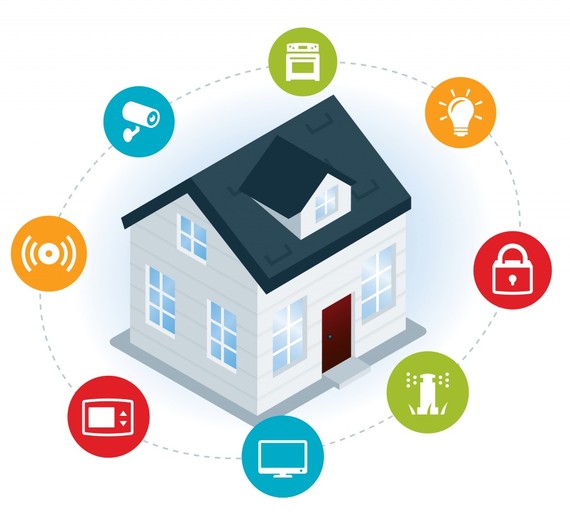We all like to think of our homes as a safe haven. The place where we go to after an exhausting day at work, where we lay our kids down to sleep at night knowing that they are going to be just there when we wake up. It is important that we keep our homes safe, and we do everything in our power to ensure the same. Automated lights that can be toggled with our iPhone, fire alarms and carbon monoxide detectors to warn us of incoming danger, cameras to keep a pair of eyes upon us as we sleep, there is so much that technology has to offer in terms of safeguarding our fortress. However, such efficient techniques of home automation also come with a certain amount of vulnerability. Luckily for us, such vulnerabilities can be plugged, leaving us free to enjoy the myriad advantages of home automation.
It is a deliciously tempting offer to be one of the selected few who call themselves the proud owners of a smart home. Given the time and age we live in, it is probably also a wise idea to invest a certain amount of capital on building yourself a smart home. It makes your home safer, cooler and way more efficient. However, the more devices you connect to your smart home network, the more access points you create for potential hackers to take control of your home, the more vulnerable you are. While we cannot possibly force ourselves into living in an outdated world, we can certainly take measures to ensure that the new world we live in is safer.
The first thing worth considering while building a secure smart home is to minimize the number of devices connected to your network. Do you really need an automated music system? Is a smart doorbell really necessary? Can you do without that refrigerator that warns you every time you are out of milk? The idea is to minimize the number of access points available to hackers for exploitation while trying to infiltrate your home. Pick only what you need, stay away from clunky features that will do nothing but clutter your system with more vulnerabilities.
I can never emphasize enough on the need for secure passwords. It is an advice that is always repeated, but so often ignored. When choosing passwords for your devices, you just have to prioritize safety over convenience, that's what passwords are for. It will probably be a little more difficult to remember and slightly more tedious to key in, and it probably won't even be able to fend off determined hackers, but it will make it much more difficult to hack into your network. It is a basic security measure, but an important one nevertheless.
Many people acquire smart homes simply for the convenience of being able to control your entire household with a single remote control. However, we must keep in mind that a centralized automated system with only one overhead is also vulnerable to infiltration. If you own a lot of smart devices, it is probably a good idea to create multiple networks instead of one, making it more difficult to take control of your entire system. Dividing your security system into multiple layers, so as to prevent it from going down on its entirety due to a single failure, helps ensure that your home security system is safer and more adapted for high risk networks.
Keeping your network safe from hackers is an important aspect when it comes to automating your household. In the absence of a human element in your home's security system, it is really vital that you equip it with everything it needs to keep your family safe from intrusions and attacks. The advantages of a smart home are too enormous to ignore, but we must ensure proper use to reap the most benefits with minimal trouble. What are your thoughts?

